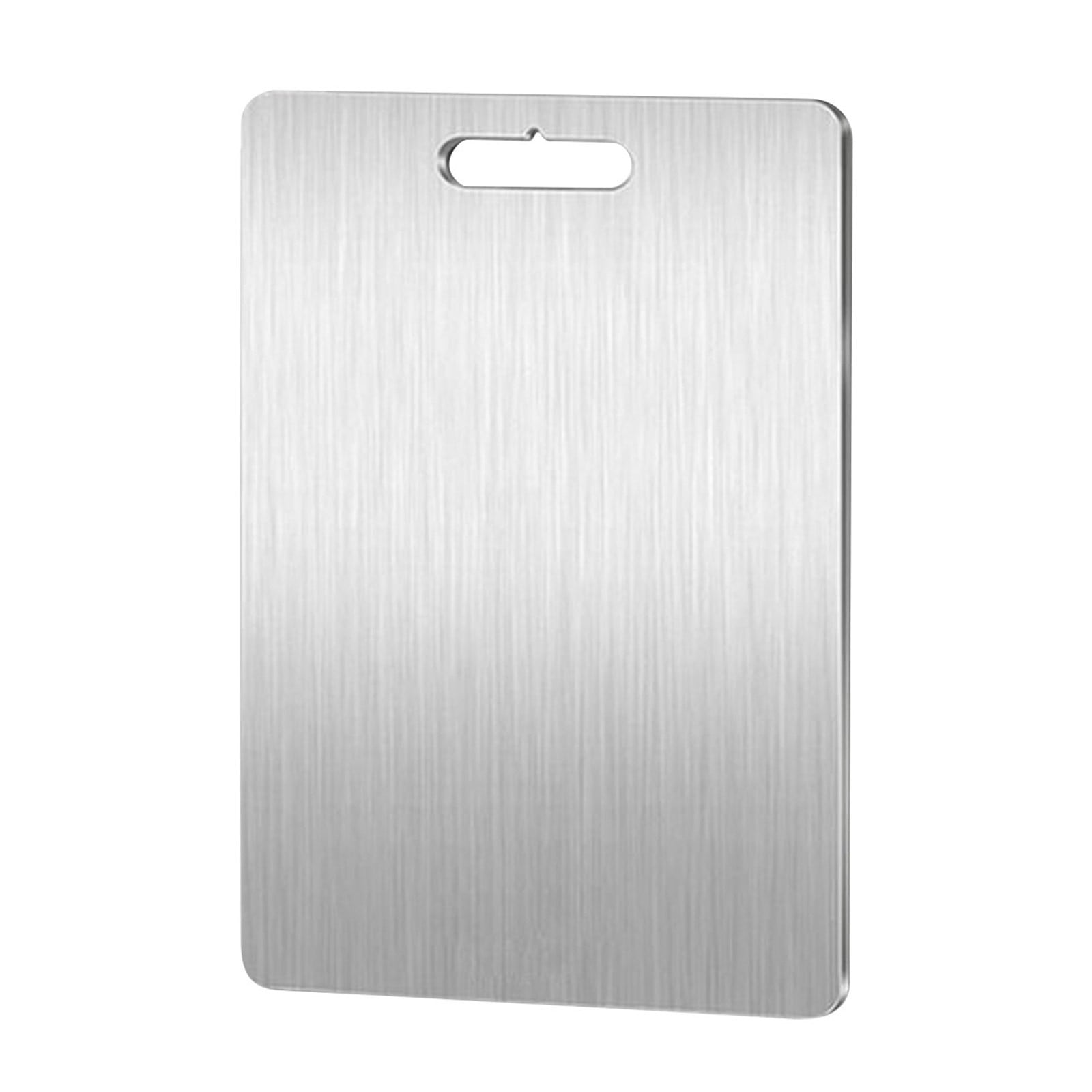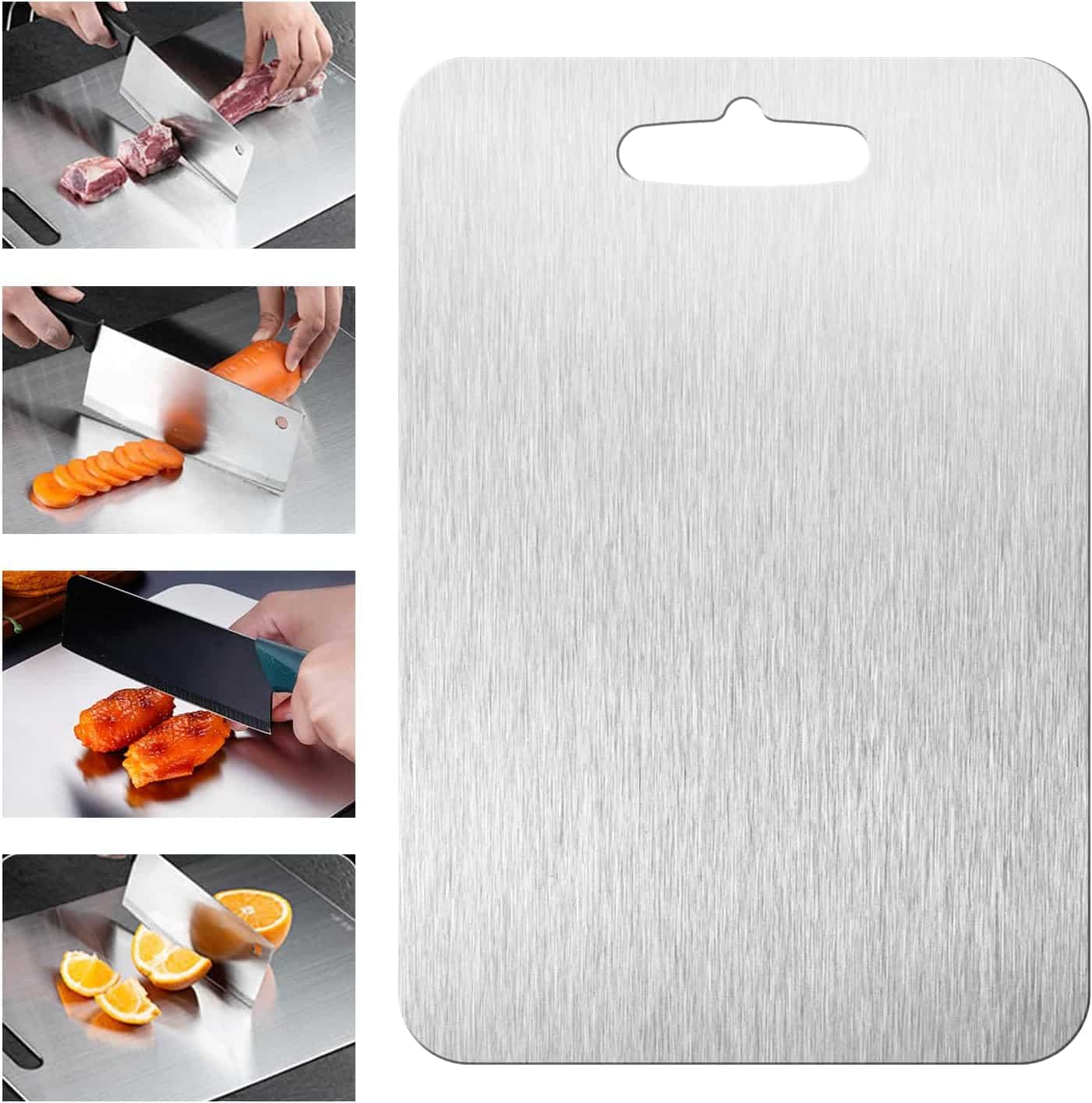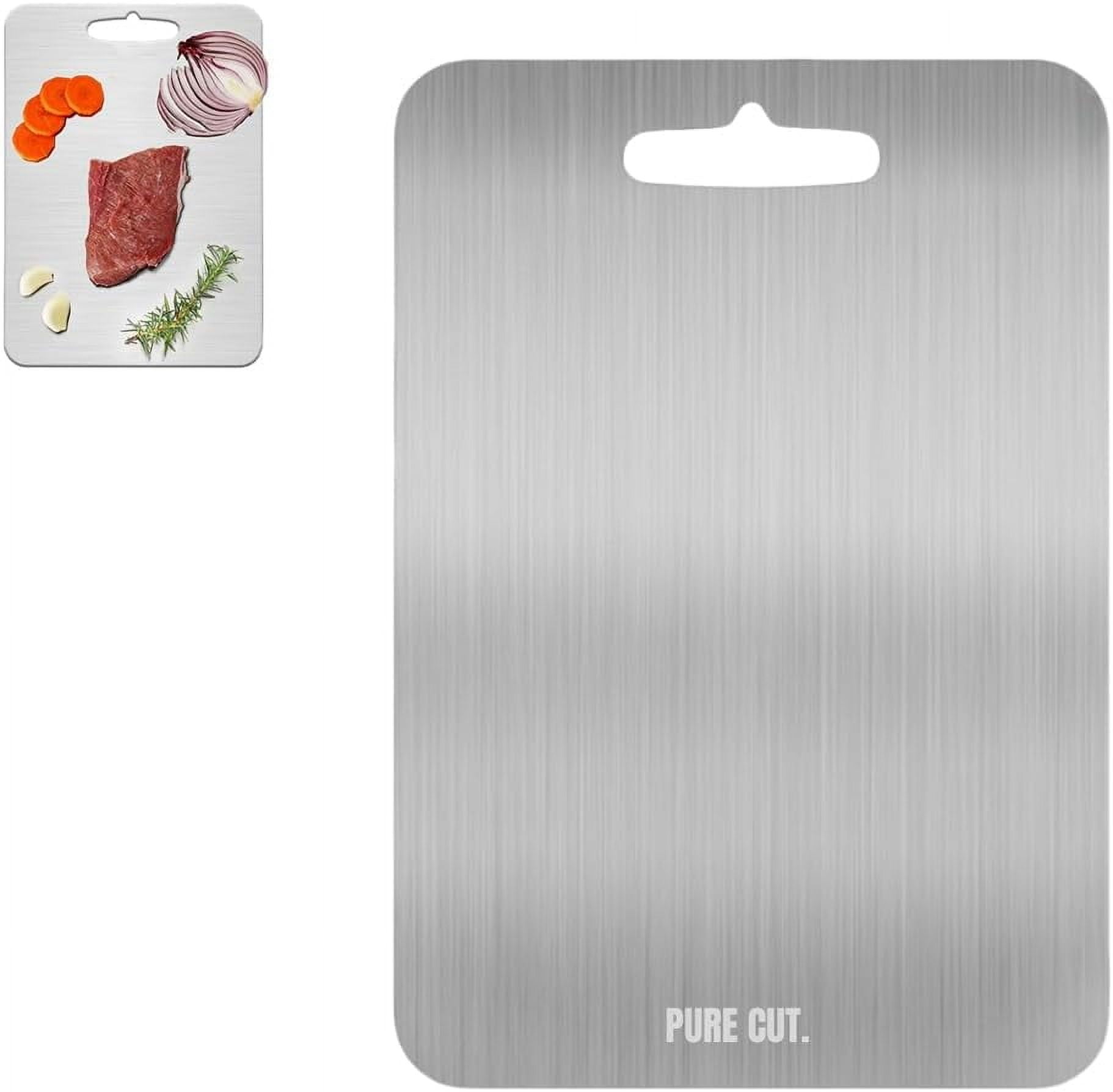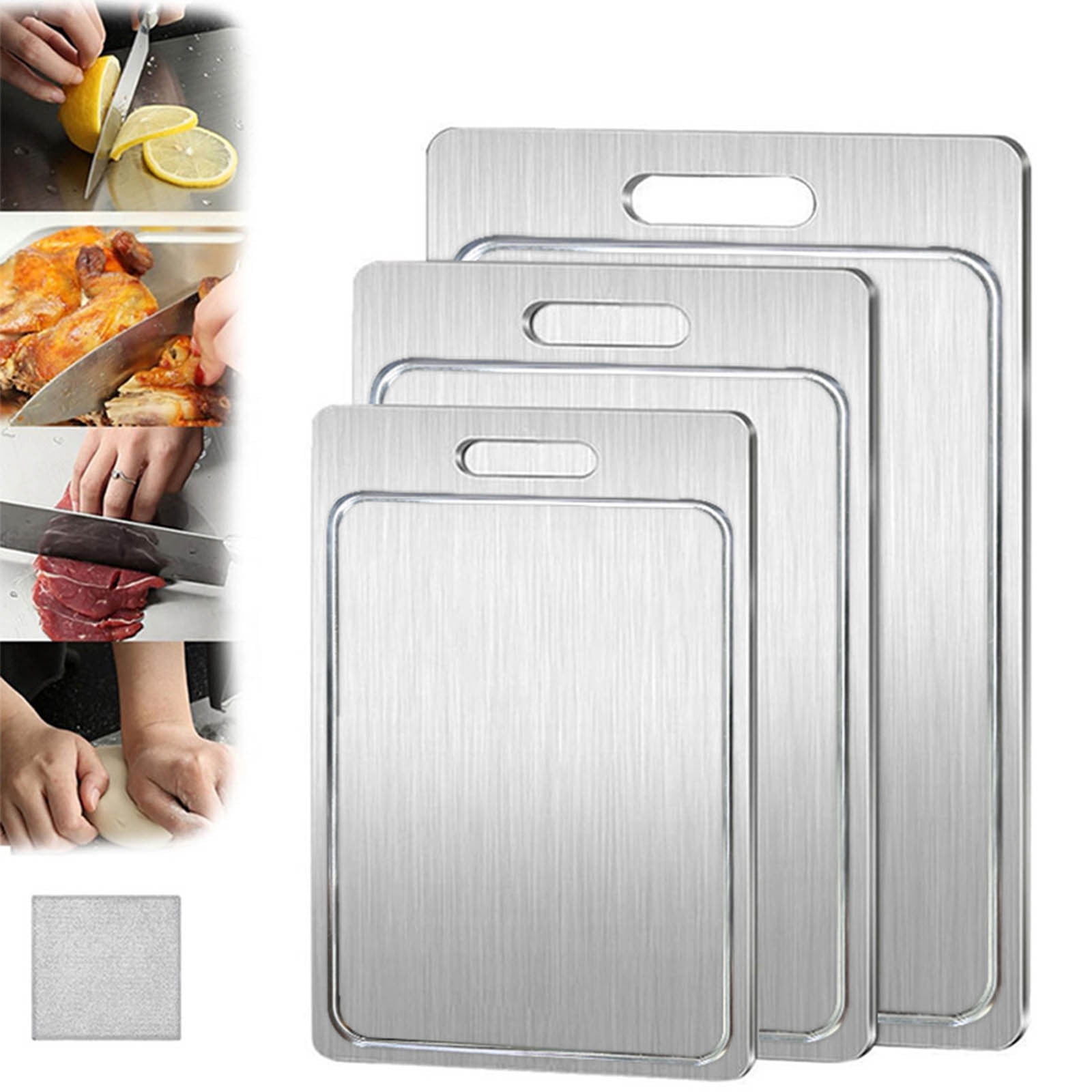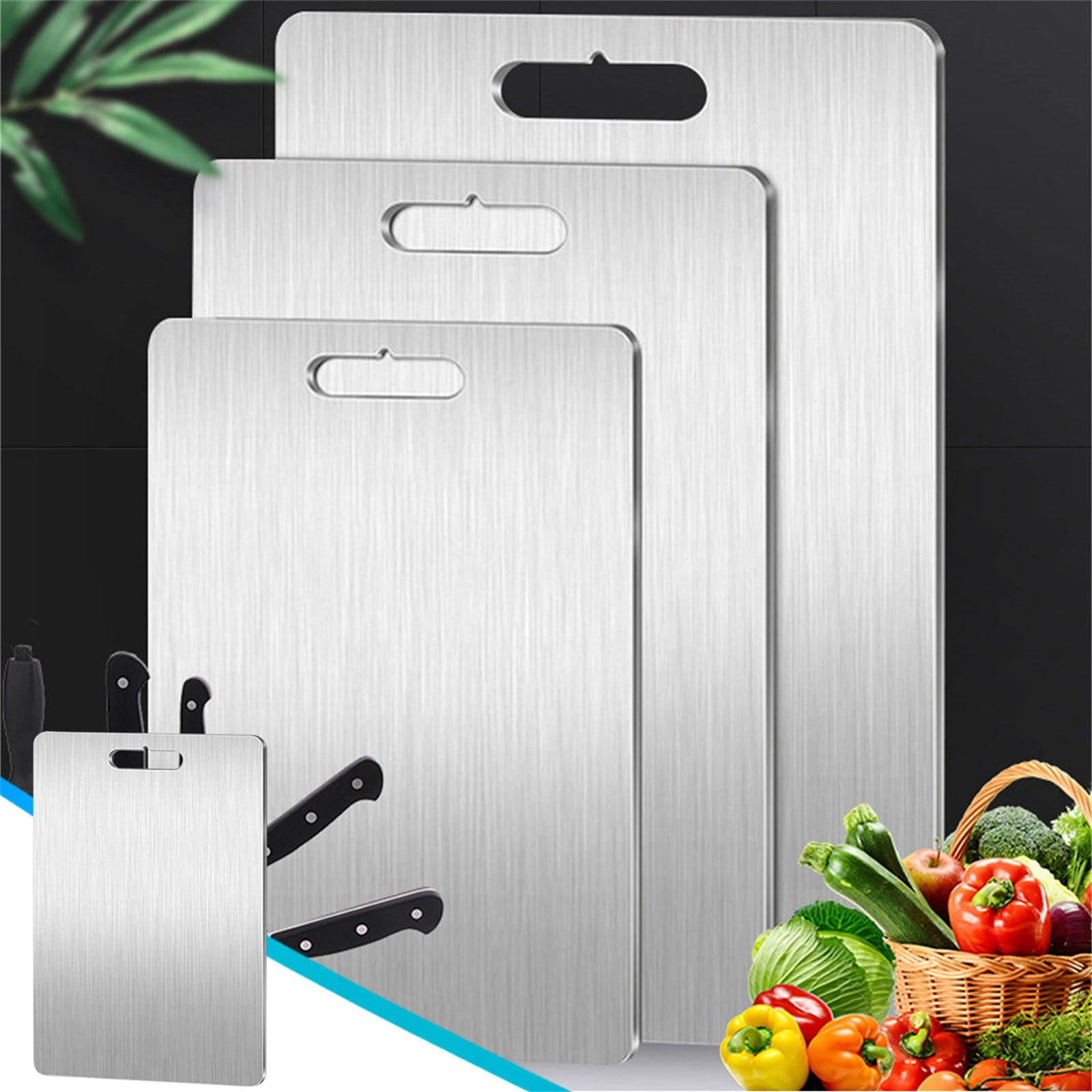Are Titanium Cutting Boards Good For Knives
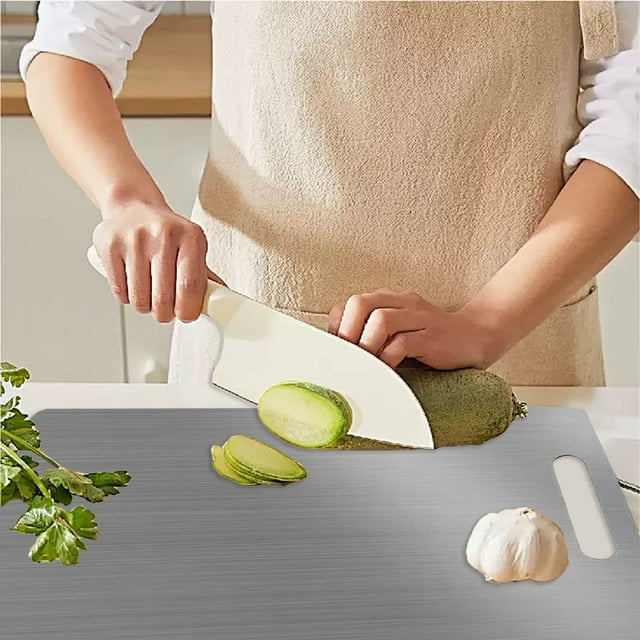
The aroma of freshly chopped herbs filled the kitchen, a symphony of basil, parsley, and thyme mingling in the air. Sunlight streamed through the window, illuminating dust motes dancing above the pristine countertop. A glint of silver caught the eye – a gleaming titanium cutting board, a modern marvel amidst the rustic charm of the wooden cabinets. The question lingered: would this sleek surface be a friend or foe to the chef's cherished collection of knives?
The debate surrounding titanium cutting boards and their effect on knives is a nuanced one, with passionate advocates on both sides. While their durability and hygiene are undeniable, concerns remain about their impact on blade sharpness. Ultimately, understanding the properties of both titanium and knife steel is crucial to making an informed decision.
The Rise of Titanium in the Kitchen
Titanium, celebrated for its strength, lightweight nature, and corrosion resistance, has found its way into various industries, from aerospace to medical implants. Its application in kitchenware, particularly as cutting boards, is a relatively recent development. Manufacturers tout its hygienic properties, claiming it is less porous than wood or plastic, making it resistant to bacteria and easy to clean.
This non-porous surface is a major selling point, especially in a world increasingly conscious of food safety. Traditional wooden cutting boards, while aesthetically pleasing, can harbor bacteria within their fibers, even with diligent cleaning. Plastic boards, though easier to sanitize, are prone to deep scratches that can also become breeding grounds for germs.
Titanium, being non-porous and exceptionally durable, offers a compelling alternative. It’s marketed as a hygienic and long-lasting solution for the modern kitchen.
The Steel vs. Titanium Showdown
The core of the debate lies in the interaction between titanium and the steel used in knife blades. Most knives are made from various types of steel, each with differing hardness levels, measured on the Rockwell Hardness Scale. Harder steels, like those used in Japanese knives, maintain their edge longer but are also more brittle.
Softer steels, common in many Western-style knives, are easier to sharpen but require more frequent honing. The key question is whether the hardness of titanium is abrasive enough to dull a knife's edge over time.
Anecdotal evidence suggests that some users experience quicker dulling with titanium boards compared to wood or plastic. However, scientific studies specifically addressing this issue are limited, making it difficult to draw definitive conclusions based solely on empirical data.
Expert Opinions and Scientific Insights
Chef Emily Carter, a culinary instructor with over 20 years of experience, shared her perspective: "While titanium boards are undeniably beautiful and easy to clean, I've noticed my knives require more frequent sharpening when I use them regularly. It's a trade-off between convenience and blade maintenance."
Dr. Alan Chen, a materials scientist specializing in metallurgy, offered a more technical explanation: "The hardness of titanium alloys used in cutting boards can be comparable to some knife steels. Repeated contact can cause micro-abrasions on the blade's edge, leading to dulling over time. The extent of this effect depends on the specific alloys used in both the board and the knife."
He further added, "Proper cutting technique also plays a crucial role. Using a gentle, slicing motion rather than forceful chopping can minimize the impact and reduce wear on the blade." The American Knife & Tool Institute (AKTI) emphasizes the importance of using the right cutting board for the specific knife and cutting task, recommending softer materials like wood or plastic for delicate tasks.
The Importance of Cutting Technique and Board Maintenance
Regardless of the cutting board material, proper cutting technique is paramount for maintaining knife sharpness and preventing damage. Avoiding forceful chopping and twisting motions can significantly extend the life of your knives. Regular honing, using a honing steel or ceramic rod, helps realign the blade's edge and maintain its sharpness between sharpenings.
Cleaning the cutting board after each use is also essential for hygiene and longevity. While titanium boards are easy to clean, it's crucial to use non-abrasive cleaners to avoid scratching the surface. A simple wash with soap and water is usually sufficient.
Even the most durable cutting board requires proper care and maintenance to prevent damage and ensure optimal performance.
Alternatives and Considerations
For those concerned about the potential impact of titanium on their knives, several alternatives offer a balance of hygiene and blade friendliness. Wooden cutting boards, particularly those made from hardwoods like maple or walnut, are gentle on knife edges and possess natural antibacterial properties. However, they require regular oiling to prevent drying and cracking.
High-quality plastic cutting boards, made from materials like polyethylene, are also a popular choice. They are easy to sanitize and generally softer than titanium, making them less abrasive on knife blades. Bamboo cutting boards are another option, offering a sustainable and relatively durable surface.
The best choice ultimately depends on individual preferences, budget, and the type of knives used.
Making an Informed Decision
Choosing a cutting board is a personal decision that should consider various factors. If hygiene is a top priority and you are willing to invest in regular sharpening, a titanium cutting board might be a suitable option. However, if you prioritize preserving your knife's edge and prefer a more forgiving surface, wood or high-quality plastic might be better choices.
Consider the types of knives you use most frequently. If you primarily use knives with hard steel blades, a softer cutting board material might be more beneficial. If your knives have softer steel blades, the impact of a titanium board might be less significant.
Ultimately, the best approach is to experiment and find what works best for your individual needs and preferences. Consider user reviews and possibly test the board.
Conclusion: A Matter of Balance
The verdict on titanium cutting boards and their impact on knives is not a simple yes or no. While their durability and hygiene are commendable, the potential for increased blade wear is a valid concern. The key lies in understanding the properties of both titanium and knife steel, adopting proper cutting techniques, and practicing regular knife maintenance. It's a delicate balance between convenience, hygiene, and the longevity of your cherished knives.
As the sun dipped below the horizon, casting long shadows across the kitchen, the chef carefully wiped down the titanium cutting board. Perhaps the answer wasn't about choosing one material over another, but about embracing a mindful approach to cooking, one that valued both the tools and the craft.


